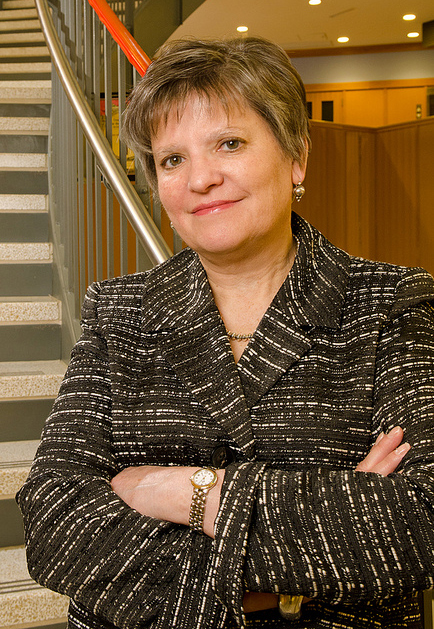 The “act local, think global” adage has been applied to many contexts, from city planning to environmental concerns, but it is equally appropriate for the University Libraries’ approach to archives and special collections resources. Many of our collecting areas have a local or regional focus, whether acquiring the records of local architecture firms, regional theaters, LGBT organizations, or area authors. The reach of these collections, however, is increasingly worldwide, with the power of digitization enabling broad access not previously possible.
The “act local, think global” adage has been applied to many contexts, from city planning to environmental concerns, but it is equally appropriate for the University Libraries’ approach to archives and special collections resources. Many of our collecting areas have a local or regional focus, whether acquiring the records of local architecture firms, regional theaters, LGBT organizations, or area authors. The reach of these collections, however, is increasingly worldwide, with the power of digitization enabling broad access not previously possible.
This issue of continuum explores an array of community collaborations and relationships, while also celebrating the 50th anniversary of the Immigration History Research Center Archives (IHRCA) and the Social Welfare History Archives — both ground-breaking efforts to collect historic resources at the grassroots level. Organizations such as the Minneapolis Polanie Club entrust our IHRCA with their archives. Individuals, such as Hmong immigrants, share their stories to ensure their voices are captured for the future. Among our newer collecting areas, there is growing engagement as well. Whole artistic communities such as theaters, dance companies, and musical organizations motivate each other to build a comprehensive representation of the performing arts in the region. The rich aggregation of records and narratives makes our Libraries’ archival collections one of the largest in the country.
It’s not enough to amass collections, however. The Libraries also has a long tradition of sharing these treasures through public programming — whether it is an event or exhibit on campus or taking our curators “on the road” to speak with community groups. The lure of these resources for researchers also attracts a broad audience of scholars who travel to use our unique collections.
It used to be that the University of Minnesota’s reputation as a mecca for archives and special collections was spread largely through scholar communities, often reflected in published works that noted the foundational sources drawn from our collections. Now with the Libraries’ large-scale digitization programs, individuals of all ages and all interests — for scholarship or schoolwork, professional or personal inquiry — can tap the collections online. Through our partnership with the Digital Public Library of America — a new grassroots initiative with national scale — we have contributed nearly a half million digital items from cultural institutions across the state. Research previously hindered by physical distance is now possible through deep digital access, finding the proverbial needle in the digital haystack (or map inside a book) via the Internet.
Our collections are exceptionally rich and community relationships strong. With the power of digital access, both are enhanced. This is captured so well in a quote recently shared by one of our Libraries’ donors, attributed to Sir John Lubbock: “We may sit in our library and yet be in all quarters of the earth.” I suspect from Lubbock’s 19th-century vantage point, he meant that libraries expand one’s horizons. From a 21st-century vantage point, we are quite literally bringing the library to all ends of the earth.
—Wendy Pradt Lougee
University Librarian
McKnight Presidential Professor

